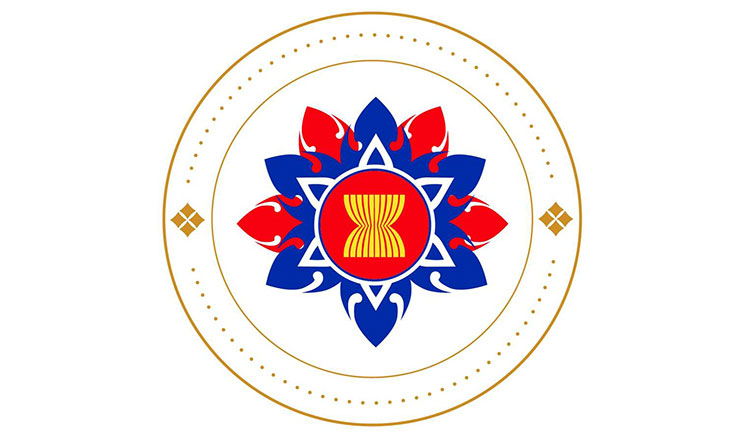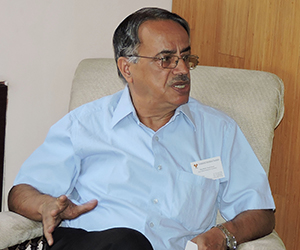Ukraine crisis have further underlined the fact that in the interconnected world of today the crisis in one part of the globe have the potential of impacting the regions that are far removed from the scene of action. And especially so when major powers or their proxies are involved in such a conflict; in all such cases parties/nations not involved in conflict would like to adopt a course of action in line with their national interests.
The reaction of ASEAN as a multilateral grouping and the response of its member countries to the Russian- Ukrainian conflict at the individual level generally follow this principle.
On 28 Feb the ASEAN Foreign Ministers expressed ‘deep concern’ over armed conflict in Ukraine and advocated restraint, dialogue and use of diplomatic means adhering to the principles of United Nations Charter as well as their own Treaty of Amity and Cooperation in Southeast Asia. They also emphasised on “the responsibility of all parties to uphold the principles of mutual respect for the sovereignty, territorial integrity, and equal rights of all nations.”
The ASEAN statement refrained from singling out Russia or even mentioning its name in any which way leave alone calling it as an aggressor or whether it had violated Ukraine’s sovereignty and territorial integrity. Evidently, ASEAN was quite careful in being seen as supporting one or the other camp. This kind of approach is also reflected in ASEAN outlook towards contestation between the US and the West on one side and China on the other in the South China Sea and surrounding areas. Overall objective of ASEAN continues to be realising its own interests as an organisation while attempting to navigate adroitly in the emerging strategic dynamics.
One of the main priorities of the ASEAN countries in line with many other countries has been to evacuate its citizens from Ukraine to safer zones or to their respective countries. Their response to the crisis has also been conditioned by the likely geo-political and economic impact that it might have if they support one or the other side.
Therefore, individual countries in the ASEAN have mostly come out with non-committal or nuanced approach while Singapore has somewhat been upfront when it’s Foreign Ministry on 24 Feb “strongly condemned any unprovoked any unprovoked invasion of a sovereign country under any pretext.” Later, on 02 March Singapore also voted in favour of the UN resolution that called for Russia to “immediately, completely and unconditionally withdraw all of its military forces from the territory of Ukraine within its internationally recognized borders.” At the other end was military ruled Myanmar that termed Russia’s action as “an appropriate measure to preserve its sovereignty” in its initial response to the Ukraine crisis. Though Myanmar voted in favour of the UN General Assembly (UNGA) resolution criticising Russia it needs to be remembered that it is the previous civilian regime of Aung San Suu Kyi which still has UN ambassador in place.
The other supporters of UNGA resolution against Russia from ASEAN grouping were Brunei, Cambodia, Indonesia, Malaysia, Philippines and Thailand while Laos and Vietnam were the two absentees. Their voting in the favour does not necessarily mean that they have condemned Russia for its invasion of Ukraine. These countries’ initial reactions to developments in Ukraine show somewhat of mixed reactions without taking sides with one or other camp.
In the initial response to the crisis on 24 Feb Cambodian Prime Minister Hun Sen had called the situation as ‘very concerning’ and hoped for a ‘peaceful resolution’. Indonesia Foreign Ministry spokesman had underscored the need for adhering to the international law and UN charter regarding territorial integrity and sovereignty of a country. Malaysian Prime Minister had also hoped for ‘best possible peaceful solution between Ukraine and Russia followed by a successful resolution of the conflict’. On 26 Feb Laos had also called for restraint and peaceful settlement. Similarly, Thailand’s Foreign Ministry expressed deep concern and the need for finding a peaceful solution. Vietnamese Foreign Ministry spokesman had earlier advised ‘relevant sides to practice self restraint, step up dialogue efforts and promote diplomatic measures to deal with conflict in line with UN charter’ before it absented itself from the UNGA vote on the Russian-Ukraine conflict.
Also before the UNGA voting on Russia-Ukraine crisis on 02 March, Brunei and Philippines had chosen to remain somewhat quiet.
Not only Vietnam has received a variety of defence equipment and platforms from Russia it has also been helped by Russia in oil/gas exploration in some of the areas contested by China in the South China Sea. Historically, Russia has been a supporter of Vietnam in its troubles with China. Being a veto holding power of the UNSC Russia does exercise adequate influence among the ASEAN countries. And Russia besides rescuing Myanmar in UNSC on a number of occasions has supplied Myanmar military with armaments. It should also be noted that Russia had also supplied fighter aircrafts to Indonesia though lately Jakarta has gone in the American defence equipment and fighter aircrafts.
The adverse economic impact of the rising oil and commodity prices would also be felt by the ASEAN countries to varying degrees and therefore they would be keen that the ongoing conflict ends sooner rather than later. For instance, Indonesia imports a large part of its wheat requirements from Ukraine. Similarly, Philippines and Thailand will be impacted by increasing oil and food prices. Further most of the ASEAN tourism industries would be largely impacted by the ongoing Russian-Ukraine crisis. This is on top of the fact that the ASEAN economies are yet to fully recover from the ill effects of Covid pandemic.
In conclusion it can be said though most of the ASEAN countries expressed concern over Russian Ukraine conflict based on their domestic interests though Singapore was the only country that has expressed its stance clearly and criticised Russia for its aggression. While ASEAN would like to adhere to its principle of ASEAN’s centrality when it comes to geo-political issues yet reaching consensus on such matters is not an easy task for the ten members’ grouping. Further, it is unlikely that ASEAN or its members would join the sanctions imposed by the US and western countries except perhaps for Singapore in somewhat in an indirect manner. Indonesia which is seen as a leading country of the group had announced that sanctions are unlikely to solve anything and the same does not lead to resolution of an issue.
Additionally, ASEAN’s response to Ukraine conflict could also be seen in the context of its approach to the emerging strategic dynamics of Indo-Pacific where it has followed the middle path between US and China and which to an extent is outlined in its document ‘ASEAN Outlook on Indo-Pacific’. While ASEAN wishes to solve its economic and security issues through ASEAN led mechanisms and under the UN charter it has not been able to forge a unified response and therefore same is reflected in its approach the Russian-Ukraine conflict. However, ASEAN remains cognizant of the fact that with the US and western countries’ attention and energies getting diverted to Ukraine issue China may take advantage in the South China Sea and across the Taiwan Strait which would be detrimental to their security concerns.
(The paper is the author’s individual scholastic articulation. The author certifies that the article/paper is original in content, unpublished and it has not been submitted for publication/web upload elsewhere, and that the facts and figures quoted are duly referenced, as needed, and are believed to be correct). (The paper does not necessarily represent the organisational stance... More >>
Image Source: https://www.khmertimeskh.com/wp-content/uploads/2022/02/5DE91302-50CC-434E-8A5F-2B7FDD212986.jpg











Post new comment